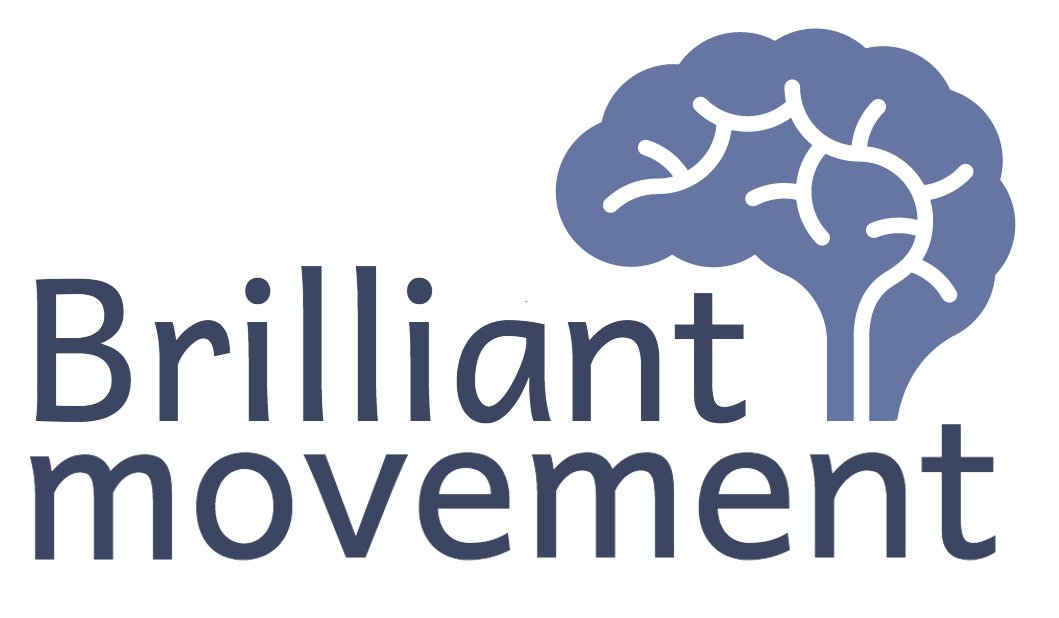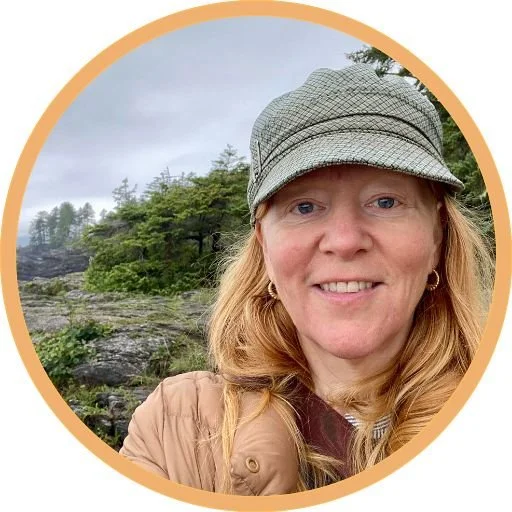7 Gentle, Brain-Based Therapies Supporting Children With Developmental Delays in Portland
If your child has been diagnosed with a developmental delay, chances are you’ve already been handed a list of “must-do” therapies. OT, PT, speech. Maybe for hours of appointments each week.
And if you’re like many of the parents I meet,
you’ve done all of it. Or you’ve tried. And you’re just… exhausted.
You might find yourself quietly wondering,
Isn’t there something gentler? Something that wakes up my child’s brain & body connection and turns the learning switch ON?
This list is for you.
As a certified Anat Baniel Method® NeuroMovement® practitioner here in Portland, I’ve spent years exploring whole-child, brain-first, gentle therapies that support real progress — without force, overwhelm, or burnout. The approaches I’m sharing below are ones that I trust, have seen make a difference, and believe deserve more visibility.
Of course, there are some wonderfully enlightened OT and PT practitioners who honor the brain-body connection in their work. And I admire them!
But many traditional systems still treat children as mechanical beings who simply need to practice harder.
The therapies you’ll find below are different. They assume something powerful: your child’s brain is capable of learning and growth. And there are wonderfully kind ways to support it.
Let’s explore seven deeply supportive, often lesser-known therapies that are helping children thrive right here in Portland, Oregon.
1. NeuroMovement® (Anat Baniel Method®): Movement That Organizes the Brain
This gentle, brain-first approach is the foundation of my own work.
NeuroMovement® is an evolution of the Feldenkrais® Method, developed specifically to help children with neurological differences, developmental delays, and sensory-motor challenges learn and grow.
Instead of teaching a child to perform a skill through repetition, NeuroMovement® provides high-quality sensory input that helps the brain discover new options.
It’s not about fixing or forcing. It’s about gently inviting the brain to create better maps for movement, coordination, comfort, and even emotions and cognition.
NeuroMovement® is particularly effective for:
Cerebral palsy (CP)
Hypoxic-Ischemic Encephalopathy (HIE)
Genetic syndromes
Autism
Global developmental delays
Sensory processing challenges
Sessions are deeply respectful of your child’s timing and readiness.
They can be relaxing, playful. Many parents report noticing changes in posture, calmness, engagement, movement coordination or skills development within a few sessions.
The outcomes can seem miraculous especially when traditional therapies have plateaued.
👉 Learn more in this blog post about NeuroMovement®
👉 Schedule a free Discovery Call here
2. Pediatric Acupuncture (AcuforKids.com)
If the word acupuncture makes you think of long needles just pause right there.
Pediatric acupuncture, especially as practiced by the exceptional team at Acu for Kids, is often needle-free.
Instead, they use gentle tools in a Japanese style called shonishin to stimulate points along the body’s meridians.
Benefits can include:
Improved digestion and sleep
Reduced anxiety and sensory sensitivity
Better immune regulation
Support for emotional and nervous system balance
Children with autism, ADHD, SPD, and developmental delays often respond beautifully to this work which pairs beautifully with other calming, brain-integrative therapies like NeuroMovement®.
3. Craniosacral Therapy (CST)
Craniosacral Therapy is a hands-on therapy that uses extremely gentle touch to release restrictions in the body and central nervous system. It’s subtle, often barely visible to observers.
Don’t be fooled by what it looks like because it’s deeply impactful.
I often recommend CST for:
Newborn babies who’ve experienced birth trauma
Children with feeding, sleep, or regulation challenges
Kids with torticollis or chronic tension
Anyone whose nervous system feels “on edge” or stuck in a stress response
One of the leading CST providers in Portland is Carol Gray, who specializes in working with infants and children.
Her work blends beautifully with NeuroMovement® — both are non-invasive, body-led approaches that prioritize safety and comfort.
4. Hippotherapy (Therapy on Horseback)
Hippotherapy is physical, occupational, or speech therapy delivered while on horseback.
The movement of the horse provides rich, rhythmic input to the child’s sensory and motor systems. This can help improve balance, coordination, trunk control, and even speech production in children with developmental delays or disabilities.
But beyond the physical benefits, hippotherapy offers something else: joy and delight!
The relationship with the horse, the open air, the rhythmic sway all contributes to emotional well-being and regulation.
Many Portland-area families work with organizations like Forward Stride or Oregon Hippotherapy.
(Check availability as most have waiting lists, but they’re well worth exploring.)
5. Safe & Sound Protocol (SSP)
Developed by Dr. Stephen Porges, the Safe & Sound Protocol is an auditory intervention grounded in Polyvagal Theory. It uses specially filtered music to support vagal tone and emotional regulation. SSP is essentially training the nervous system to feel safer, more engaged, and more balanced.
SSP is especially supportive for children who:
Struggle with transitions or regulation
Are easily overwhelmed or “shut down”
Have experienced trauma, early adversity, or anxiety
Show social withdrawal or hypersensitivity to sound
This protocol is offered by trained providers who are often occupational therapists, speech-language pathologists, or counselors who work with a neurobiological lens.
6. Neurofeedback
Neurofeedback is like physical therapy for your child’s brainwaves.
Using EEG sensors, a computer monitors the brain in real time and “rewards” patterns that are more organized and regulated — often using video games or visual feedback.
Over time, this helps the brain learn how to:
Reduce anxiety
Improve attention
Support sensory processing
Stabilize sleep and mood patterns
Neurofeedback is non-invasive and well tolerated by children. It’s a longer-term process but can produce lasting shifts especially when combined with other whole-child supports.
There are several Portland-area clinics offering child-friendly neurofeedback programs.
Check out Olga Ward of Beaverton Neurofeedback for help for your child.
7. Chiropractic Care for Children (Dr. Norman Price at ProHealth)
Many families are surprised to learn how impactful gentle chiropractic care can be for children with developmental delays.
When practiced by someone with deep pediatric expertise like Dr. Norman Price at ProHealth Chiropractic, this modality can support better alignment, mobility, regulation, and even sleep.
Dr. Price uses low-force adjustments and works with babies, toddlers, and older children.
Chiropractic care may be especially helpful for children with:
Torticollis or flat head syndrome
Coordination or postural challenges
Sensory overload
Nervous system dysregulation
Parents frequently report that their child seems more comfortable, grounded, and emotionally regulated after a session. The work is gentle and always done in communication with the child’s needs.
Closing Thoughts: You Deserve Gentle, Informed Support
There are so many ways to support your child’s growth and you don’t have to settle for approaches that feel forceful, disconnected, or confusing.
Whether your child has a diagnosis or not, whether you’ve tried every therapy or are just beginning to explore, I hope this list reminds you that there are gentle, respectful, brain-based options available. Right here in Portland.
If you’re curious about how NeuroMovement® might support your child or how it could complement the work you’re already doing — I’d love to talk with you.
👉 Schedule your free Discovery Call here
Your child’s brain is always capable of learning.
And sometimes, the smallest shifts create the biggest changes.
✨ If you explore any of the therapies or providers I’ve mentioned in this blog and have a good experience — please tell them you found their work here. It helps us all continue to connect and grow this community of gentle, brain-informed support for children.
Are you looking for in-person (Portland, OR area) or virtual help for you or Your child?
I’m Phoebe MacRae and I’m an Anat Baniel Method® NeuroMovement® Practitioner in Portland Oregon.
I use gentle, respectful, somatic movement to help Children with Disabilities or Developmental Delays to naturally develop new brain connections.
If your child likes it, you’ll find me using my other specialty- MUSIC 🎵- in kids’ sessions. Music has a powerful impact on all parts of the brain and it can facilitate miracles!
Do you have further questions?
Please reach out to talk with me!

